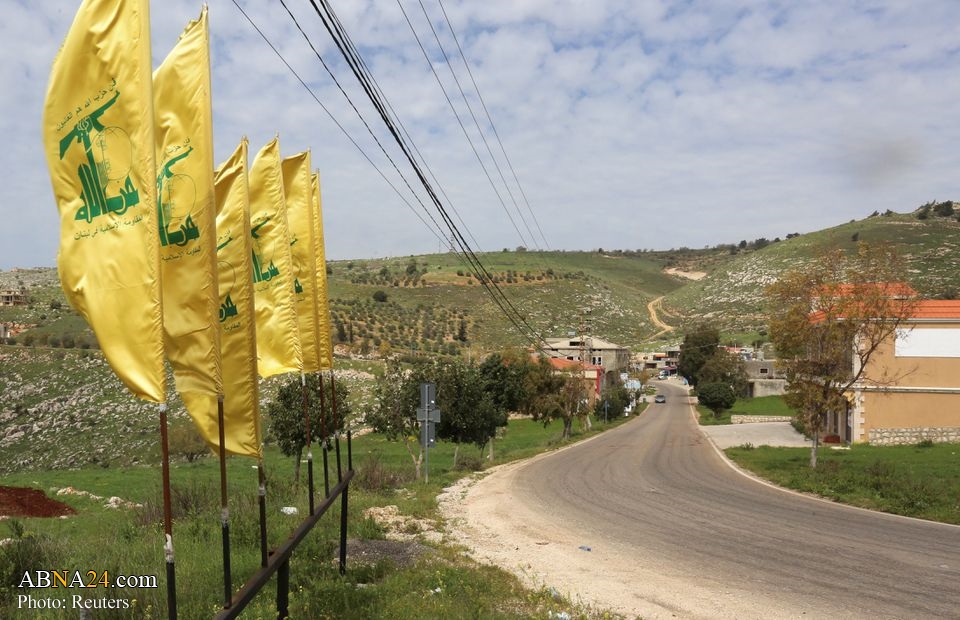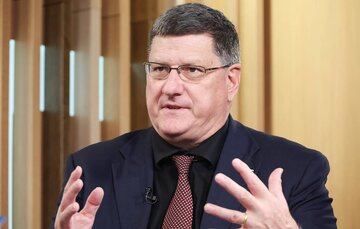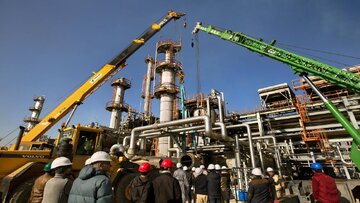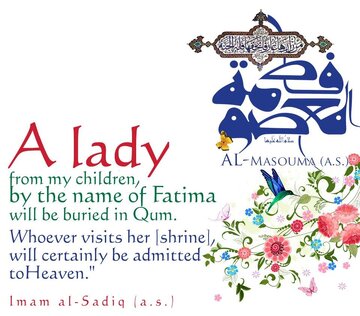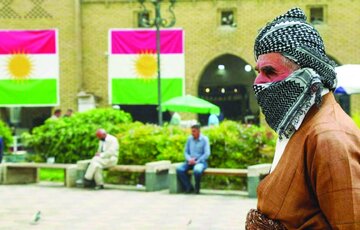AhlulBayt News Agency (ABNA): After the 2006 war, Hezbollah faced an ongoing challenge as consecutive governments were forming. Since then, Hezbollah’s General Secretariat and political council adopted a variety of methods to prevent any clashes or civil war, especially with all the adversaries and political parties backed up from regional countries, such as Saudi Arabia, opposing all its defensive actions to protect the Lebanese people and territories from the hostilities of the “Israeli regime”.
The fundamental concern for Hezbollah was securing a unified decision to face the occasional Israeli attacks and assaults.
Hezbollah faced both a military and a political war. The latter, however, is not easier, as it previously obliged the ministers of Hezbollah and Amal Movement to quit from the 2006 government led by Fouad Siniora. The reason was due to a law presented by the adversaries suggesting an endorsement for the Special Tribunal for Lebanon, investigating the murder of Lebanese prime minister Rafic al Hariri back in 2005.
Hezbollah at that time, with all the support accumulated from the 2006 war, stood on the safe side, as people were right behind their backs.
Time passed and several prime ministers faced the same issue, as a political war was obviously led by USA tools to implement their decisions in which both the master and the puppet have common interests: Opposing Hezbollah’s role in facing the “Zionist entity”. The result is always the same, PMs resign and people struggle for social stability.
The latest case, or what might seem an installed one to face Hezbollah, is the Beirut port explosion that took place on the 4th of August 2020, leaving behind more than 500 injuries and 200 casualties. The explosion was later revealed to be caused by the combustion of an ammonium nitrates shipment left behind since 2015 at the port.
Parallels between this situation and that of the Rafic al-Hariri tribunal were clear; as the explosion became the talk of the town, the Lebanese Supreme Judicial Council appointed Judge Tariq Bitar who replaced Judge Fadi Sawan to investigate the explosion. Judge Tariq Bitar has the full support of the US state department, as the latter assured on different occasions and through several statements its full support of the so-called ‘fair prosecution’.
With the backup of the US, one could expect nothing besides trials pointing out Hezbollah and his allies as the guilty parties. Summoning certain ministers for questioning while dismissing others prompted an objection from Sayyed Hassan Nasrallah, the Secretary-General of Hezbollah, who reviewed the accusations at hand and labeled them "unfair and lacking in truthfulness."
Several months passed and the current Lebanese government headed by PM Najib Mikati is facing increasing crises whilst social stability is at its frailest, notably as the Lebanese pound exchange rate reached a record low of 25,000 L.L per US dollar, setting a dangerous precedent for an economically struggling populace.
The truth is needed, notably with the country drowns in a total mess and the government is on pause, due to the retreat of Hezbollah and his allies from attending the government meetings in an indirect pressure on Bitar to pull his summons back and search for the truth.
Armed with new documents and official papers, revealing the truth with new information and clues that might be open a new chapter in the investigation. Till now, Bitar has suspiciously not shown any interest in the evidence presented and the documents revealed that describe the ship cargo orientation and usage in detail. This dismissiveness of crucial evidence is yet but another guarantee of this probe's politicization.
Hezbollah's approach to his house
A battle of long-term assault against Hezbollah has been taking place in Lebanon for years, both a military one and a political one, with both occurring simultaneously at times. Sayyed Hassan Nasrallah assured in his previous speeches that despite all hostilities, Hezbollah is facing them with utmost patience. The latest hostility came in the form of an economic war that deprived the country of the most essential needs and goods as sanctions targeted the entirety of the populace, threatening the remnants of stability people were clinging onto.
As the country collapses, the Lebanese party is battling a new form of aggression while trying to empower the country’s role and position.
With much on the line, how many steps might Hezbollah take to protect - as the party’s principles and morals impose - the Lebanese people as a whole?
The opinions mentioned in this article do not necessarily reflect the opinion of ABNA24, but rather express the opinion of its writer exclusively.
/129
After the 2006 war, Hezbollah faced an ongoing challenge as consecutive governments were forming. Since then, Hezbollah’s General Secretariat and political council adopted a variety of methods to prevent any clashes or civil war, especially with all the adversaries and political parties backed up from regional countries, such as Saudi Arabia, opposing all its defensive actions to protect the Lebanese people and territories from the hostilities of the “Israeli regime”.
The fundamental concern for Hezbollah was securing a unified decision to face the occasional Israeli attacks and assaults.
Hezbollah faced both a military and a political war. The latter, however, is not easier, as it previously obliged the ministers of Hezbollah and Amal Movement to quit from the 2006 government led by Fouad Siniora. The reason was due to a law presented by the adversaries suggesting an endorsement for the Special Tribunal for Lebanon, investigating the murder of Lebanese prime minister Rafic al Hariri back in 2005.
Hezbollah at that time, with all the support accumulated from the 2006 war, stood on the safe side, as people were right behind their backs.
Time passed and several prime ministers faced the same issue, as a political war was obviously led by USA tools to implement their decisions in which both the master and the puppet have common interests: Opposing Hezbollah’s role in facing the “Zionist entity”. The result is always the same, PMs resign and people struggle for social stability.
The latest case, or what might seem an installed one to face Hezbollah, is the Beirut port explosion that took place on the 4th of August 2020, leaving behind more than 500 injuries and 200 casualties. The explosion was later revealed to be caused by the combustion of an ammonium nitrates shipment left behind since 2015 at the port.
Parallels between this situation and that of the Rafic al-Hariri tribunal were clear; as the explosion became the talk of the town, the Lebanese Supreme Judicial Council appointed Judge Tariq Bitar who replaced Judge Fadi Sawan to investigate the explosion. Judge Tariq Bitar has the full support of the US state department, as the latter assured on different occasions and through several statements its full support of the so-called ‘fair prosecution’.
With the backup of the US, one could expect nothing besides trials pointing out Hezbollah and his allies as the guilty parties. Summoning certain ministers for questioning while dismissing others prompted an objection from Sayyed Hassan Nasrallah, the Secretary-General of Hezbollah, who reviewed the accusations at hand and labeled them "unfair and lacking in truthfulness."
Several months passed and the current Lebanese government headed by PM Najib Mikati is facing increasing crises whilst social stability is at its frailest, notably as the Lebanese pound exchange rate reached a record low of 25,000 L.L per US dollar, setting a dangerous precedent for an economically struggling populace.
The truth is needed, notably with the country drowns in a total mess and the government is on pause, due to the retreat of Hezbollah and his allies from attending the government meetings in an indirect pressure on Bitar to pull his summons back and search for the truth.
Armed with new documents and official papers, Al Mayadeen broadcasted a first-of-its-kind documentary, revealing the truth with new information and clues that might be open a new chapter in the investigation. Till now, Bitar has suspiciously not shown any interest in the evidence presented and the documents revealed that describe the ship cargo orientation and usage in detail. This dismissiveness of crucial evidence is yet but another guarantee of this probe's politicization.
Hezbollah's approach to his house
A battle of long-term assault against Hezbollah has been taking place in Lebanon for years, both a military one and a political one, with both occurring simultaneously at times. Sayyed Hassan Nasrallah assured in his previous speeches that despite all hostilities, Hezbollah is facing them with utmost patience. The latest hostility came in the form of an economic war that deprived the country of the most essential needs and goods as sanctions targeted the entirety of the populace, threatening the remnants of stability people were clinging onto.
As the country collapses, the Lebanese party is battling a new form of aggression while trying to empower the country’s role and position.
With much on the line, how many steps might Hezbollah take to protect - as the party’s principles and morals impose - the Lebanese people as a whole?
The opinions mentioned in this article do not necessarily reflect the opinion of Al mayadeen, but rather express the opinion of its writer exclusively.

